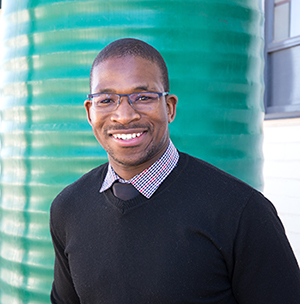Latest News Archive
Please select Category, Year, and then Month to display items
09 December 2020
|
Story UFS entral academic advising team
|
Photo Pixabay

It wasn’t easy, but we all got to this point because we stayed calm and made the effort to learn on even when it was difficult.
The University of the Free State (UFS) has remained committed to supporting you in every way possible, and as you prepare for the final assessments, remember to access the support tools you will need in order to successfully complete the 2020 academic year: https://www.ufs.ac.za/toolsforsuccess
Main exams are running from 30 November to 19 December 2020
All of the best, and break a pen in your upcoming final assessments. For those of you who will be graduating, we cannot wait to see you in that graduation attire; and those who still have some way to go, we cannot wait to serve you again in 2021 as we continue the pursuit of academic success!
Below are five main study tips that you can use for final assessment success:
1. Set a realistic study schedule
You might think that studying for eight hours straight for four days before the exam, will help you get through the work in time. See final edition of the #UFSLearnOn for more information.
2. Structure and organise your work
If your notes are organised, it is also easier for your brain to recall information, even when you become nervous during exams.
3. Practise with an old exam/semester test paper
Practice makes perfect, and although the final assessments might look different in how they are administered, it will still help to practise using old tests and exams.
4. Adapt your strategies to the content
What works for one module or even one learning outcome, might not be effective for another. You need to continually adapt your note-taking and study approaches. See #UFSLearnOn final edition for different study methods.
5. Healthy body, healthy mind
Your brain needs optimal care to perform at its best, and getting physically active (even if it is by jumping in one spot if space is limited) forces your body to release neurotransmitters responsible for positive emotions, which assist in retaining information in your memory …
Download the final edition of #UFSLearnOn that points you towards the resources you’ll need to ace your final assessments and end 2020 off on a high note!
University of the Free State strives towards going ‘green’
2017-08-07

Benedict Mochesela from University Estates on the
UFS Bloemfontein Campus. A total of thirty brand-new
water storage tanks, between 5 000 and 20 000 litres,
were installed.
Photo: Anja Aucamp
Eight provinces, including the Free State, were declared disaster areas last year due to the ongoing drought. This had a devastating effect on the agricultural sector, leaving many communities dry.
University Estates at the University of the Free State found an ideal project to make university buildings greener. A total of thirty water storage tanks, varying in size from 5 000 to 20 000 litres, were installed at various buildings on the Bloemfontein Campus. As a pilot phase, these tanks were specifically installed at residences and buildings with high traffic volumes.
Importance of water tanks at the UFS
According to Benedict Mochesela, Project Manager of this initiative, the purpose of the project is to harvest rainwater, which will be used during emergencies when the campus does not have water and the emergency water storage facility is depleted. “This water is not intended for drinking, but for the flushing of toilets,” says Mochesela.
He mentioned that the water will also be used for watering flowerbeds and gardens when the water has been standing for a long time without being used.
Recycling water: An initiative to protect the environment
A number of water storage tanks are already in place at the Qwaqwa Campus and a preliminary phase of using grey water from residences is currently ongoing at the South Campus. Grey water is made up of bath, shower, and bathroom sink water. The water is reused for toilet flushing as well as for irrigation purposes.
“Recycling of water is one of a number of initiatives the university intends to undertake to ensure and show the community that this institution remains conscious of the environment and to changes which we continuously need to adapt to.”